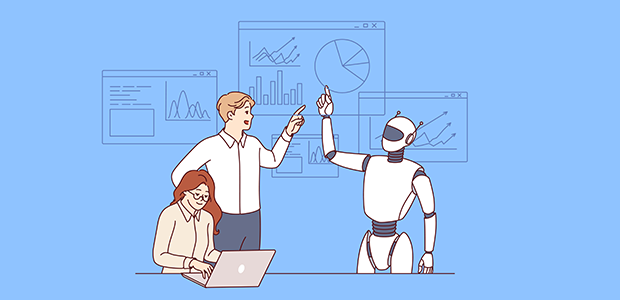
Strangers to ourselves and our colleagues: humanising the AI workplace
We hear it constantly: automate, optimise, accelerate. Organisations across the globe are throwing themselves into workplace AI, chasing productivity and advantage. But as we embed these systems deeper into our businesses, we need to ask a harder question: what happens to the human heart of the workplace?
The numbers tell a worrisome story. As organisations invest in AI capabilities, employee engagement continues to plummet. Workers report feeling increasingly disengaged, all while productivity gains from automation remain elusive. The problem isn’t the technology itself, it’s that we’ve forgotten a simple truth: at this time of AI acceleration, human connection matters more, not less.
The hidden cost of digital disconnection
Today’s flexible, hybrid workplace is already a network of digital interactions. Layering AI automation on top can widen the gaps between colleagues.
Picture this: your AI system sets up the meeting, sends reminders, drafts the follow-up. Efficient? Absolutely. But what’s missing? The casual and connecting chat before things kick off. The signals from body language. The glance across the room when someone looks puzzled. The spontaneous “what if we tried…” conversation that sparks innovation. These moments become the casualties of optimisation.
Rasmus Hougaard from Harvard Business Review puts it bluntly: poor AI design risks making work more robotic and less human. And when that happens, companies face a double loss, not just in employee engagement, but in the very productivity gains they were chasing in the first place.
Rediscovering self awareness in an automated world
Here’s the paradox: as AI becomes better at analysing us, we risk becoming strangers to ourselves. But it doesn’t have to be that way.
Used thoughtfully, AI can reveal new ways to build self-awareness and connection. Every person brings unique motivations, working styles, and communication preferences to their role. These aren’t quirks to manage, they’re foundational elements of strong, adaptive teams. The real opportunity isn’t in replacing human judgment, but in sharpening it; not in automating relationships, but in deepening them. A chance to connect on a more meaningful level with one another.
Turning insights into human understanding
APIs will be the hidden force driving AI-powered workflows. Imagine an AI assistant that quietly reminds you how your colleague likes to work – whether they thrive on big-picture brainstorming or need detailed, structured plans. Suddenly, personality insights become everyday tools, not dusty HR reports nobody returns to.
Of course, intuition cannot be replaced by API delivered data. But they can enhance it, giving teams a head start on the kind of understanding that would otherwise take months (or years) to build. Done right, it leads to more meaningful, empathetic interactions.
A future of adaptive leadership
We’re heading towards a workplace where leaders can understand their teams at a granular, individual level. This doesn’t mean putting people into neat little boxes or reducing complex personalities to data points. It means valuing and leveraging differences, recognising that one person needs detailed feedback to feel secure, while another flourishes when given broad autonomy.
This shift demands leaders who are more adaptable, more self-aware, more emotionally intelligent. And no algorithm can substitute for that.
Beyond efficiency: reclaiming human advantage
High-performing teams don’t just tick efficiency boxes; they thrive on diversity, creativity, and mutual trust. If we use AI to understand what drives our colleagues, and act on that knowledge with care, we can turn our differences into strengths and make exceptional teams.
In the race to adopt artificial intelligence, the real winners may be those who remember to turn towards each other. After all, in a future shaped by machines, our greatest advantage is becoming more human, not less.
For more startup news, check out the other articles on the website, and subscribe to the magazine for free. Listen to The Cereal Entrepreneur podcast for more interviews with entrepreneurs and big-hitters in the startup ecosystem.

